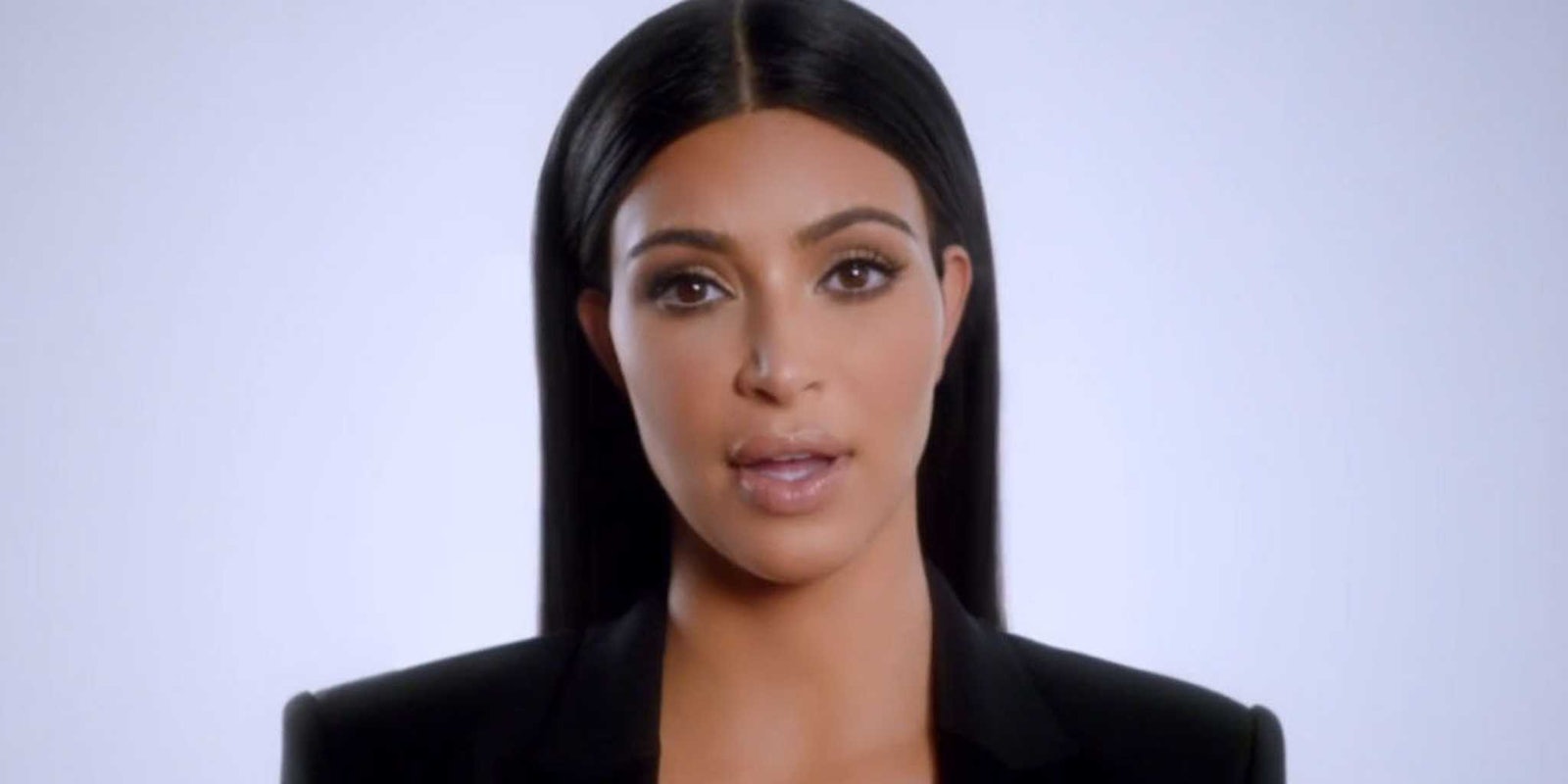Like many other Tuesdays, a crowd of women gathered in San Francisco to hear a prominent businesswoman talk about feminism. But this time, the businesswoman was not exhorting young women to lean in. The speaker was Kim Kardashian West, and she came to the Castro Theatre to talk about the objectification of women in the media—to an audience flipping through a book of semi-nude photos of her, placed on each seat.
It’s tempting to dismiss Kardashian West’s opinion on feminism. “What could she possibly add of consequence to the national discourse?” asked one critic. But recall that her persona commands a wildly popular television show, a top-grossing iOS app, and the adoration of tens of millions of social media followers. Kardashian West’s lifestyle shapes the values and politics of millions of young, mostly female Americans.
On stage with the celebrity was the Honorable LaDoris Cordell, a retired Superior Court judge and the current San Jose Independent Police Auditor. Whatever gravitas Kardashian West lacks, Cordell has in spades. At Cordell’s skillful prompting, Kardashian West spoke eloquently about the role of power in objectification but shied away from labeling herself a feminist.
Yes! @KimKardashian teaching Judge Cordell how to take a perfect #selfie #KimKBreakstheBay pic.twitter.com/VaBY2sFOQa
— InforumSF (@INFORUMsf) July 1, 2015
Kim Kardashian West presents a conundrum for feminism.
Kim Kardashian West’s body is photographed, sold, and admired by the public online and in checkout lines. Her fame comes from a sex tape, reality show, the shape of her butt, and paparazzi photos. Is that objectification? On the surface, it seems so, but Kardashian West rejects the idea that she is a victim of objectification because she maintains control over her body.
Kim Kardashian West described herself as an equal partner in the creative process with photographers and publications. “If you have the power… you can put out there what you want people to look at,” she said. “I’m proud of [my selfies], and there’s power in that. I have the control, even if I’m objectifying myself, I have the control.” Objectification is about a loss of autonomy and agency, and Kardashian West has managed to become powerful enough to reclaim and defend her autonomy and agency.
In contrast, she struggles with her relationship with the paparazzi. Although her career relies on the paparazzi (“Without them, I don’t think people would know who I am”), the paparazzi do not always respect boundaries. They intrude—unwelcome—into truly private moments. In this area of her life, Kardashian West does not have control over her body or image.
Kim Kardashian West presents a conundrum for feminism. She sells her body—but finds empowerment through it. She teaches young girls that women are defined by their sexuality—but also that self-confidence is important. She embodies feminine stereotypes—but expands the definition of motherhood to include sexuality. And her unwavering support of Caitlyn Jenner’s transition shows that she does not believe in fixed gender roles.
And she’s right: Actions matter much more than labels.
Some might call Kim Kardashian West a fourth-wave feminist or post-feminist. Like those movements, she is an advocate of equal rights, inclusivity, and celebrating female sexuality; also like those movements, she espouses personal improvement instead of social reform. When Cordell asked her about workplace sexism, her advice was to ignore it. Similarly, her advice to girls was to “be confident and secure in who you are.”
Does she consider herself a feminist? Cordell’s direct question made her uncomfortable, and Kardashian West wavered back and forth. On one hand, “I guess people would call me a feminist,” she said. “I encourage women, I love supporting women.” On the other hand, she said that feminists were about things like “freeing nipples,” so she is hesitant to identify with the label. And she’s right: Actions matter much more than labels.
Cordell asked Kardashian West whether her opinions are discounted because of her sexiness. “I think people see my persona on my show, but it would be a boring show if they showed me going to meetings all day,” Kardashian West answered. The lifestyle of a businesswoman doesn’t sell. Sex and celebrity sell.
Commodifying her own sexuality is the ultimate feminist act in a world where others try to take it from her.
Adrienne Porter Felt is an engineer & usable security researcher.
This article was originally featured on Medium and reposted with permission.
Screengrab via TMobile/YouTube

